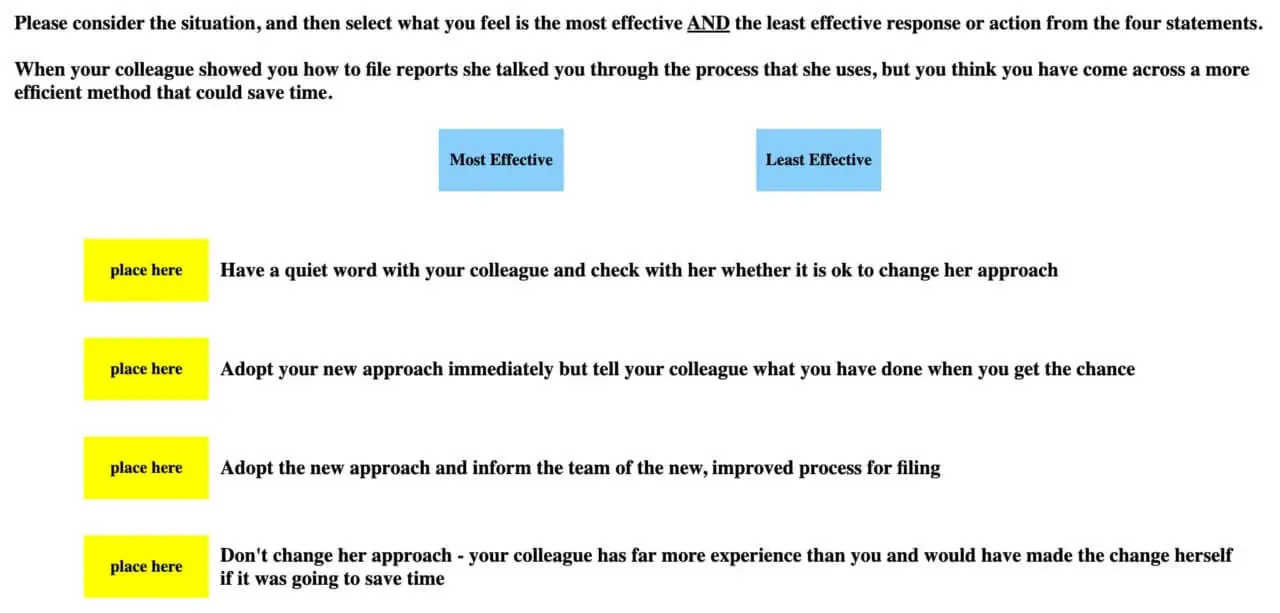The Situational Judgment Test (SJT) is a psychological assessment tool used in EPSO competitions to evaluate candidates’ suitability for roles within the EU institutions. It measures the ability to make sound decisions and apply good judgment in work-related situations.

In an SJT, candidates are presented with hypothetical, job-related scenarios that one might encounter while working at an EU institution. Each scenario is followed by a series of possible responses or actions. Candidates must choose the most and least effective responses from the options provided. The scenarios are designed to assess various competencies such as analysis and problem-solving, communicating, delivering quality and results, prioritizing and organizing, resilience, and working with others.
Most successful candidates report that they either practice every day for 1-3 hours for 2-3 weeks in advance of a test, or undergo a paid training programme.
Preparation for the SJT involves several key strategies:
- Understand the Competencies: Familiarize yourself with the key competencies that the EU institutions value, as these will be the basis for the scenarios presented in the test.
- Practice with Sample SJTs: There are many sample SJTs available online that can help candidates get a sense of the format and types of scenarios they may encounter.
- Reflect on Past Experiences: Think about how you have dealt with complex situations in the past and consider what was effective or ineffective in those circumstances.
- Develop Decision-Making Skills: Improve your ability to quickly assess a situation, identify the key issues, and determine the best course of action.
- Stay Calm Under Pressure: Practice staying calm and making decisions under time constraints, as this will be an important part of performing well on the test.
- Review Test Instructions: Make sure you understand how the test is scored and how to select responses, as this can vary between different types of SJTs.
View an EPSO sample test.





Hi, I have a question about the DSA and the address in Sysper. Does this stop the DSA or trigger…